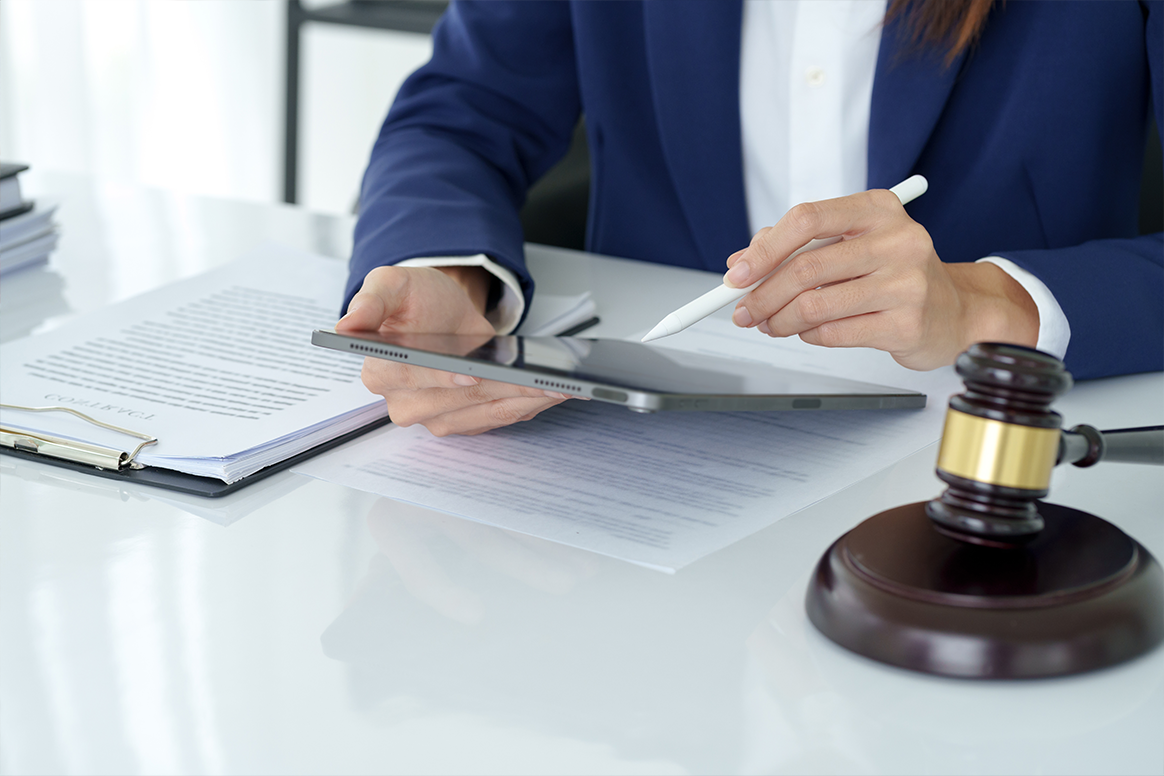Top FAQs Answered About court reporting in Modern Trials
Top FAQs Answered About court reporting in Modern Trials
Blog Article
Discovering the Skills and Methods Needed in the Area of Court Coverage
As a court reporter, you need a special mix of abilities to prosper in this demanding area. Grasping shorthand and transcription techniques is simply the beginning. You also need to navigate courtroom technology and establish real-time reporting capacities. Include in effective listening and a strong grasp of legal terminology, and you'll see how complex this function can be. But there's even more to ponder when it involves staying current and pertinent in this ever-evolving landscape.
The Relevance of Shorthand Efficiency
Shorthand proficiency is the backbone of efficient court reporting. Without it, you'll battle to catch the busy discussion that unfolds in a court. Understanding shorthand allows you to tape-record talked words promptly and accurately, guaranteeing you do not miss out on essential details. As a court reporter, you'll need to establish an individual shorthand system that works for you, enabling you to transcribe conversations in actual time.
In addition, shorthand efficiency enhances your self-confidence, enabling you to focus on the context of the discussion rather than just the act of writing. Inevitably, being knowledgeable in shorthand not only boosts your accuracy but additionally boosts your overall effectiveness as a court reporter.
Understanding Transcription Techniques
As you work on grasping transcription techniques, you'll discover that rate and precision are essential for reliable court reporting. It's likewise vital to familiarize on your own with specialized terminology to assure you capture every information appropriately. By honing these abilities, you'll enhance your general performance and professionalism in the field.
Rate and Accuracy
Mastering transcription techniques is essential for accomplishing both rate and accuracy in court coverage. Emphasis on developing your shorthand skills, as this will enhance your ability to capture talked words successfully. Inevitably, fine-tuning these skills will certainly assure you're prepared for any type of courtroom scenario.

Specialized Terminology Proficiency
Specialized terms is important for reliable court reporting, as it assures you accurately capture the subtleties of legal process. You'll come across a variety of legal lingo, from statutes to step-by-step terms, and grasping this language is critical. Familiarize on your own with common expressions made use of in court settings, such as "objection," "sustained," or "overruled." This understanding not just enhances your transcription precision but likewise enhances your confidence during jobs. Method making use of these terms in context, and consider producing a glossary for fast reference. Furthermore, remaining updated on legal growths can aid you adapt to new terms as it emerges. Eventually, your ability to navigate specific language will certainly establish you apart and assure high-grade coverage in every case you cover.

Experience With Court Room Modern Technology
Comprehending court room innovation is necessary for efficient court reporting, specifically as digital tools come to be progressively integral to lawful proceedings. You'll require to acquaint yourself with numerous tools, such as audio recording systems, video clip conferencing tools, and discussion software program. Being comfy with these technologies permits you to capture process accurately and effectively.
You must likewise recognize how to repair common concerns that may arise during a trial, making certain that you can maintain the circulation of the court procedure. Experience with paper management systems is crucial too, as you'll often need to accessibility and organize case data promptly.
Furthermore, understanding exactly how to team up with attorneys, judges, and various other experts making use of these technologies is essential. By doing so, you enhance your performance and add to a smooth court setting. Ultimately, staying updated with the most recent court room tech patterns will maintain you at the center of the career, guaranteeing you stay a beneficial asset in any legal setting.
Real-Time Reporting Skills
Real-time reporting needs you to grasp stenographic strategies that aid you capture talked words instantaneously. You'll also need a solid grasp of lawful terms to assure precision in your transcripts. Plus, managing time constraints efficiently is necessary to keep speed with the procedures.
Mastering Stenographic Methods
As you check out mastering stenographic methods, you'll discover that developing your real-time reporting skills is important for success. You need to create quick reflexes and accuracy to catch spoken words immediately. Start by exercising with a range of speakers and accents to boost your flexibility. Use your stenotype machine properly, discovering to create briefs for common expressions to enhance your speed. Constant practice is vital; devote time every day to improve your keying rate and precision. Participate in simulated trials or real-time workouts to simulate real reporting scenarios. Remember, remaining focused and preserving a clear mind will assist you flourish under stress. By grasping these abilities, you'll elevate your court reporting abilities and stand apart in the area.
Understanding Lawful Terms
Mastering stenographic methods lays a solid structure for understanding the intricacies of legal terms. As a court press reporter, you'll run into a myriad of lawful terms that can be frightening at. Familiarizing yourself with typical expressions, statutes, and acronyms is vital. You need to actively engage with legal records, attend court sessions, and join lawful workshops to deepen your understanding.
Practice is key-- repetitive direct exposure to legal language will boost your self-confidence and speed. With diligence, you'll browse legal terminology with convenience, enhancing your real-time reporting skills.
Efficiently Taking Care Of Time Restraints
While court reporting needs precision, it additionally requires you to take care of time restrictions effectively. You need to create strong real-time reporting abilities to maintain pace with fast-moving legal process.
Creating a system for note-taking can likewise boost your effectiveness, allowing you to record vital details without missing crucial details. Furthermore, you need to discover to prioritize jobs during a session, knowing when to concentrate on the speaker and when go to this web-site to glimpse at your notes. Understanding these techniques will not just boost your confidence yet also ensure you satisfy limited deadlines in your reporting.
Effective Listening and Concentration
Efficient listening and focus are vital skills for stenotype reporter, considering that you must properly catch talked words in genuine time. To stand out, you require to focus completely on the speaker, filtering out diversions that could divert your interest. This indicates adjusting right into not just the words, however likewise the tone and context, which can supply critical insights.
Practice energetic listening by involving with the product. Take notes on essential points to help reinforce your understanding and retention. Employ techniques like visualization, where you imagine the content being talked about, to enhance your focus.
This will certainly boost your ability to remain engaged and soak up information. By sharpening these skills, you'll assure that you deliver exact and reputable transcripts, making you a useful asset in the court room.
Legal Terminology and Language Abilities
Legal terms forms the foundation of effective court coverage, so understanding the language made use of in the lawful system is crucial for your success. court reporting. You'll experience numerous legal expressions and ideas daily, from step-by-step terms to particular laws. Familiarizing on your own with these terms not only improves your precision however also increases your confidence in the court
Language abilities are similarly vital. You'll need to record spoken words quickly and specifically, recording subtleties in tone and inflection. This needs not only a strong understanding of lawful lingo but likewise a strong command of grammar and spelling.
Moreover, being mindful of local languages and variations can right here help you adapt to different court settings. Enhancing your vocabulary and practicing with legal papers will even more improve your abilities. By understanding lawful terms and language, you assure that your court coverage is both exact and reliable, ultimately adding to the integrity of the legal process.
Continuing Education and Professional Development
As you navigate your career in court reporting, continuing education and learning and expert advancement ended up being essential for remaining current in the area. The lawful landscape constantly develops, and you need to keep up with changes in laws, technology, and best methods. Signing up in workshops, webinars, and certification programs can improve your skills and widen your expertise.
Networking with other specialists with associations and conferences additionally supplies vital insights and sources. This link helps you remain notified about sector patterns and can open doors for job chances.
You might take into consideration going after specialized certifications in locations like CART (Interaction Access Realtime Translation) or clinical transcription to additionally differentiate yourself in the work market.

Often Asked Inquiries
What Is the Average Wage for Court Reporters?
The average salary for court press reporters differs by location and experience, however you're taking a look at around $60,000 to $80,000 annually (court reporting). Some skilled specialists also earn over $100,000, particularly in high-demand locations
How Much Time Does Stenotype Reporter Training Normally Take?
Stenotype reporter training generally takes about 18 months to 2 years, relying on the program and your dedication. You'll find out crucial abilities and techniques, so stay focused and dedicated to complete your training successfully.
Are There Certification Requirements for Court Reporters?
Yes, there are certification requirements for stenotype reporter. You'll normally require to pass a nationwide examination and might additionally require state-specific certifications. Remaining upgraded on guidelines is essential for keeping your qualifications and career advancement.
Can Court Reporters Job Remotely?
Yes, stenotype reporter can work from another location. Several usage navigate to this site technology to record procedures from home or other places. You'll discover that remote work offers flexibility, permitting you to stabilize your expert and personal life more successfully.
What Industries Employ Court Reporters Besides the Lawful Field?
Stenotype reporter locate chances in various sectors beyond regulation. You may work in corporate setups for meetings, media for shut captioning, or education for transcribing talks. Your abilities can open up diverse specialist doors.
Report this page